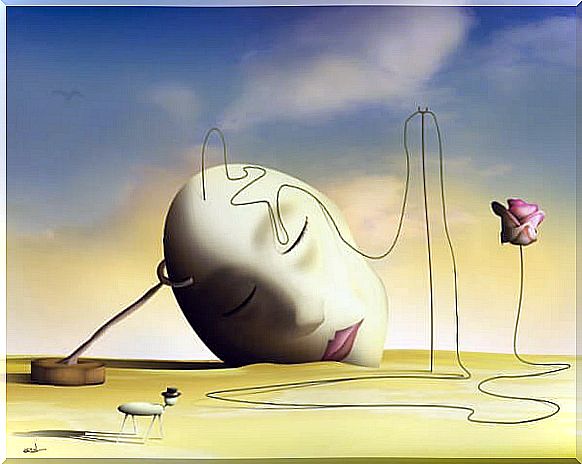Conjugating The Verb Change Can Ruin A Relationship

There are many couples who conceive love as a way to change the other or oneself. But they do not treat this change as a way of growing together as a couple and as individuals, but as a way of achieving what they consider to be “the perfect couple.”
In this search for the perfect partner, they conceive their relationship as a reflection of their own desires. They treat the other as if they had no substance or form, but were built through the fulfillment of what the other member of the couple wants.
Then, they begin to conjugate the verb to change without shame. They go from saying at the beginning of the relationship that of “never change” but that quickly evolves to “you can change some details that I no longer like”, and that, unfortunately for them, ends with a “you have changed and you no longer want”.
In this pathological way of looking at couple relationships, the protagonists use emotional blackmail to get what they want. Thus, they conjugate the verb change to obtain their desired perfect partner until they realize that their desires change over time and their partners cannot fulfill everything they seek at all times.

When changing a little becomes customary
Once the relationship begins, these harmful couples who are looking for that ideal of a perfect partner begin to notice those considered small details that do not satisfy them in their partner. Then, with the subtle art of suggestion, managing the guilt or obligation in the other, they begin to propose small changes.
Over time, this way of changing little by little, becomes a way of relating within the couple itself. In this dynamic of change, objectives are lost and negative emotions dominate the relationship, because joint growth is no longer sought but rather the domination of the other.
Freedom of action between the members of the couple ceases to exist and the tyranny of domination or submission to the wishes of one of the members is established. Or what is worse, stop looking for the consonance of the partner to seek personal satisfaction. But, this form of satisfaction changes over time and, therefore, the couple never adapts to what the other wants.

Changing as a partner is seeking adaptation to the environment
This does not mean that within couples the concept of change does not enter. The change is normal from the point of view of adaptation to the environment. Other systems with which the couple interacts are in a continuous process of change: friendships, family or work mark relationships in many ways.
For this reason, couples are in a continuous process of transformation and growth to adapt to the changing context that surrounds them. This does not mean that these changes should be directed to the satisfaction of individual needs of one of its members without taking into account the other. The change must occur in consonance with both members and seeking the best adaptation to the environment, without undermining the needs of each member.
Numerous studies show that, the success in solving the inconveniences or problems that the changes bring to the couple, also have to do to a great extent with the meaning that this attributes to them. In this sense, the changes that bring growth and adaptation to the environment, if they are manageable and possible to overcome, become moments of learning and growth.

The “you have changed” as a trap that leads to rupture
But if the change in the couple occurs selfishly, we come to the trap of “you have changed” as an excuse for the breakdown of the relationship. This happens because the changes have not been established as an opportunity for the couple’s growth, but as an obstacle.
This obstacle is the wishes of one of the members. But the couple is not built to meet the expectations or desires of an individual but to grow within an imperfect reality that surprises us every day.
If we reflect a little, we will realize that, when we try to change someone because they have a way of being that we do not like, usually far from obtaining what we want, we achieve the opposite effect. This in a couple was not going to be the exception. If there is something that you do not like about her or you accept it as it is or it is not love what you really feel.









